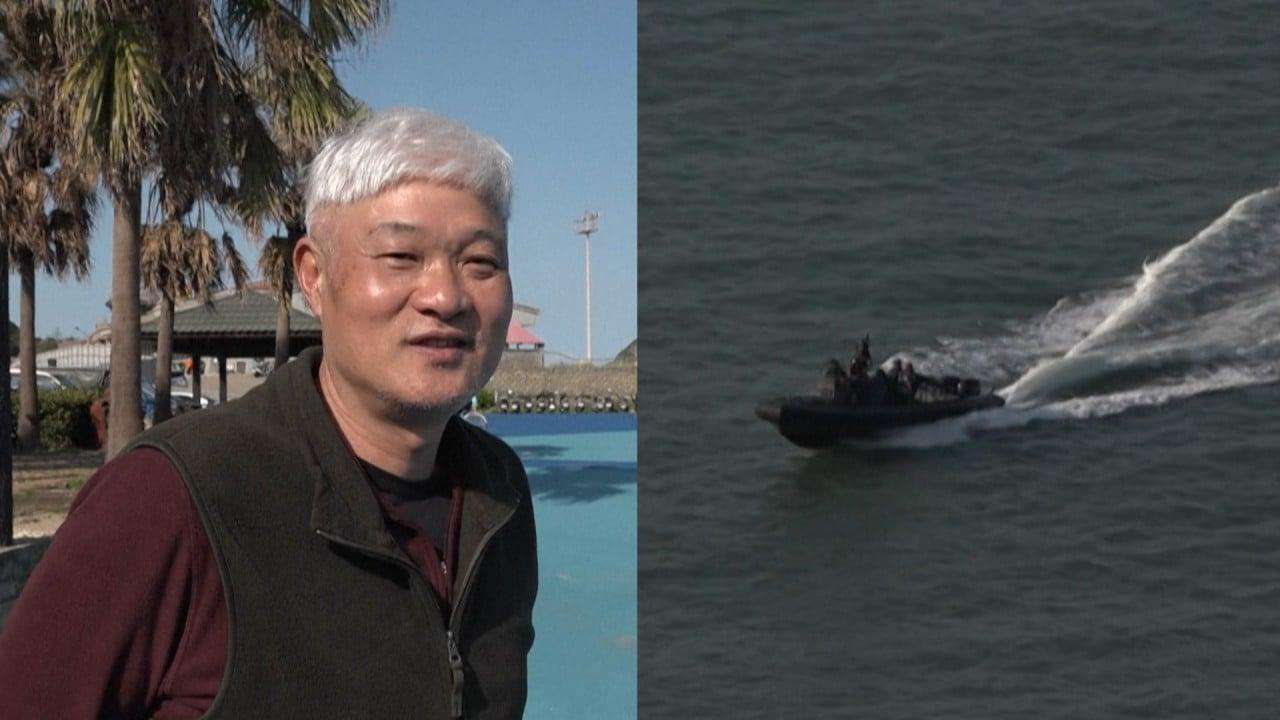
Bolton is expected to meet Taiwanese leader Tsai Ing-wen and other senior government officials as well as the heads of political parties on the island to exchange views on regional and cross-strait security issues.
Tsai Ming-yen, director of the National Security Bureau, Taiwan’s top intelligence agency, confirmed that he would meet Bolton later this week to discuss ways to boost the island’s defences.
“We respect all kinds of proposals from our friends to increase the defence capability of Taiwan and will have in-depth discussion with [Bolton] on what would be his view,” Tsai Ming-yen told lawmakers on Wednesday when asked if the former US official’s visit would be beneficial to Taiwan.
Bolton, who served under former president Donald Trump, has called for full diplomatic recognition of Taiwan and active military exchanges with the island, including dock visits by American warships – appeals that have angered Beijing.
John Bolton was national security adviser to Donald Trump. Photo: AFP
Bolton was in the room with Chinese President Xi Jinping and Trump when they met on the sidelines of the Group of 20 summit in Buenos Aires, Argentina in 2018.
He also served as the US ambassador to the United Nations from 2005 to 2006, under then-president George W. Bush.
Beijing views Taiwan as part of its territory to be brought under its control, by force if necessary. It is opposed to the self-ruled island having formal exchanges with the US and other countries, insisting that moves like these are a violation of its sovereignty.
The US, like most countries, does not see the island as a sovereign state but is against any forcible change of the status quo.
In South Korea on Tuesday, Bolton called for Seoul, Washington and Tokyo to explore a trilateral nuclear consultative mechanism similar to Nato’s Nuclear Planning Group, or to initiate a broader group of “collective self-defence” that could potentially include Taiwan.
“South Korea can help create a structure of collective self-defence in East Asia or the Indo-Pacific more broadly,” he told Reuters. “The more people can look at their mutual interests not simply on the nuclear side but against the threat of states like China and North Korea, the safer we all are.”
More US politicians have been visiting Taiwan in recent years as its geopolitical and strategic values grow stronger in the face of Beijing’s military expansion, and as anti-China sentiment increases, according to observers.
“Taiwan has become a very important and eye-catching issue in the US in recent years,” said Wang Chih-sheng, secretary general of the Association of Chinese Elite Leadership, a Taipei think tank.
“I believe all potential candidates in next year’s presidential poll in the US will express their support for Taiwan in different ways,” he said, adding that high-profile visits to the island would be one way to do this.


